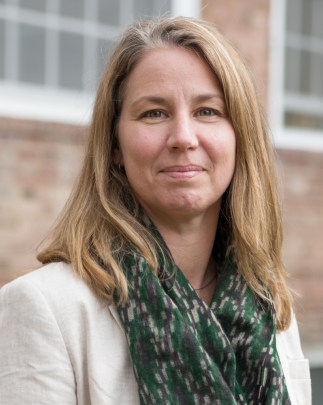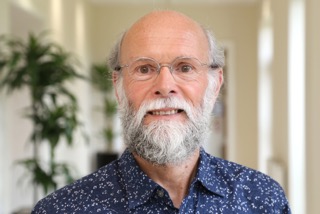The digital worlds that we inhabit in our everyday lives are organized by myriad digital devices and infrastructures. From tablets, smartphones, and computers to watches, health trackers and so on, digital devices open up and close down the possibilities of what we can and cannot do as we can interact, transact, connect and communicate. At the same time, they generate enormous volumes of data about our movements, locations, preferences, associations, activities, interests, encounters, and private and public relationships. In doing so they can powerfully shape and have consequences for who we are as both individuals and collectives. Our relations with digital devices and data can close down possibilities because of the limits, tensions, disputes and dangers that they generate through filtering, tracking, and normalizing. At the same time, they can and do open up spaces of possibilities and opportunities to imagine and act otherwise such as witnessing, hacking, and commoning. In this talk I will discuss how data politics involve struggles between closings and openings and how subjects become rights claiming citizens through what they say and do through the Internet.

Evelyn Ruppert is Professor of Sociology at Goldsmiths, University of London. She studies the sociology of data specifically in relation to how different kinds of data are constituted and mobilised to enact and govern populations. Evelyn is PI of a five-year European Research Council funded project, Peopling Europe: How data make a people (ARITHMUS; 2014-19). She is also Founding and Editor-in-chief of a SAGE open access journal, Big Data & Society: Critical Interdisciplinary Inquiries, launched in June 2014. Recent books are Being Digital Citizens (authored with Engin Isin) published in April 2015 (RLI International) and Modes of Knowing (edited with John Law) published in August 2016 (Mattering Press).

Frank Pasquale, JD, MPhil, is an expert on the law of big data, predictive analytics, artificial intelligence, and algorithms. He has advised business and government leaders in the health care, internet, and finance industries, including the U.S. Department of Health and Human Services, the U.S. House Judiciary Committee, the Federal Trade Commission, and directorates-general of the European Commission. Routinely quoted in global media outlets, including the Financial Times, the New York Times, and The Economist, he is the author of The Black Box Society, (Harvard University Press, 2015), which has been published in Chinese, Korean, French, and other translations. He has also served on the NSF-sponsored Council on Big Data, Ethics, & Society. He co-convened the conference "Unlocking the Black Box: The Promise and Limits of Algorithmic Accountability in the Professions," at Yale University, and is now at work on a book tentatively titled Laws of Robotics (under contract to Harvard University Press).
Doctoral students and Post-Docs in the School of Graduate Studies will present their research in Pecha Kucha style: 22 slides, 20 seconds per slide!
Full details: http://www.queensu.ca/sgs/big-data-showcase


Denise Anthony is Vice Provost for Academic Initiatives, and Professor and past-Chair (2007-11) in the Department of Sociology at Dartmouth College. From 2008-2013 she was Research Director of the Institute for Security, Technology, and Society (ISTS) at Dartmouth.
Dr. Anthony’s work explores issues of cooperation, trust and privacy in a variety of settings, from health care delivery to micro-credit borrowing groups to online groups such as Wikipedia and Prosper.com. Her current work examines the use of information technology in health care, including effects on quality, on the organization of health care, as well as the implications for the privacy and security of protected health information. Her multi-disciplinary research has been funded by grants from the National Science Foundation and others, and published in sociology as well as in health policy and computer science journals, including among others the American Sociological Review, Social Science and Medicine, Journal of the American Medical Association, Health Affairs, and IEEE Pervasive Computing.


The film is preceded by an introduction by David Lyon. David Lyon is Director of the Surveillance Studies Centre and Professor of Sociology and Professor of Law at Queen’s University. Credited with spearheading the field of “Surveillance Studies”, Lyon has produced a steady stream of books and articles which have been translated into over 18 languages. He was involved with the international Surveillance Studies Network and its journal, Surveillance & Society, from their beginnings. Most recently he was awarded the SSHRC Impact: Insight Award (2015), and an honorary doctorate from the Università della Svizzera Italiana (2016). Lyon’s work has been recognized in several countries, including Canada, the USA and the UK. Lyon directs a large-scale international team project on Big Data Surveillance, funded by the Social Sciences and Humanities Research Council of Canada.
About the film: A documentarian and a reporter travel to Hong Kong for the first of many meetings with Edward Snowden. The documentary film, Citizenfour, is the result.
Information on David Lyon’s new book Surveillance after Snowden can be found HERE.
The conventional wisdom is that the modern political campaign needs to be “data driven” to consolidate existing support and to find potential new voters and donors. The capture and consolidation of these data permit the construction of detailed profiles on individual voters and the “micro-targeting” of increasingly precise messages to increasingly refined segments of the electorate. These practices constitute a form of surveillance. But what form of surveillance, and how does it differ empirically and theoretically from the surveillance of suspects, consumers, and employees?

Colin Bennett is a Professor in the Department of Political Science at the University of Victoria. He has enjoyed Visiting Professorships at Harvard’s Kennedy School of Government, the Center for the Study of Law and Society at University of California, Berkeley, the School of Law, University of New South Wales and at the the Law, Science, Technology and Society Centre at the Vrije Universiteit in Brussels.
His research is focused on the comparative analysis of surveillance technologies and privacy protection policies at the domestic and international levels. In addition to numerous scholarly and newspaper articles, he has published six books, including The Governance of Privacy (MIT Press, 2006) and The Privacy Advocates: Resisting the Spread of Surveillance (MIT Press, 2008). Through a SSHRC Partnership Grant on Big Data Surveillance, he is currently researching the capture and use of personal data by political parties in Western democracies.
Contact: cjb@uvic.ca / www.colinbennett.ca

Paul C. Zikopoulos, is the VP of BigData Analytics and Competitive at IBM. He is an award winning writer and speaker who has been consulted on the topic of BigData by the popular TV show “60 minutes”, advises various universities on their graduate analytics programs, and named to over a dozen “Experts to Follow” lists in social media. You’ll also find Paul taking a very active role around Women in Technology (including a seated board member for Women 2.0, a global network and social platform for aspiring and current female founders of technology ventures). Paul has written 19 books and over 350 articles on data. He doesn’t think NoSQL is something you put on a resume if you don’t have SQL skills and he knows JSON isn’t a person in his department. Ultimately, Paul is trying to figure out the world according to Chloë—his daughter, whom he notes didn’t come with a handbook and is more complex than that topic of BigData, but more fun too. Find him on Twitter @BigData_paulz.